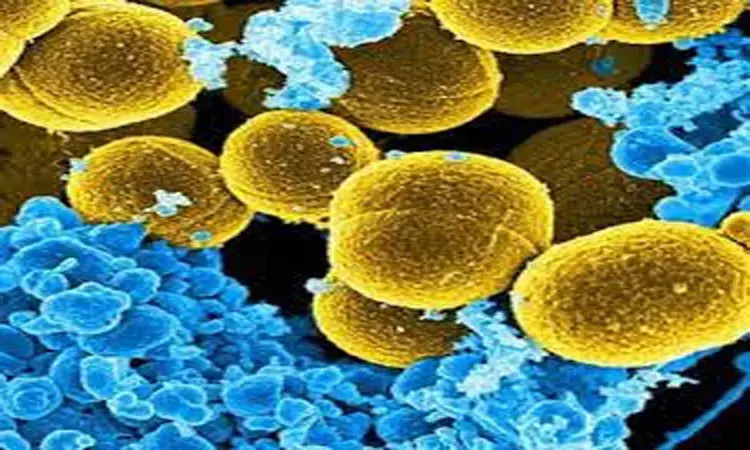- Home
- Medical news & Guidelines
- Anesthesiology
- Cardiology and CTVS
- Critical Care
- Dentistry
- Dermatology
- Diabetes and Endocrinology
- ENT
- Gastroenterology
- Medicine
- Nephrology
- Neurology
- Obstretics-Gynaecology
- Oncology
- Ophthalmology
- Orthopaedics
- Pediatrics-Neonatology
- Psychiatry
- Pulmonology
- Radiology
- Surgery
- Urology
- Laboratory Medicine
- Diet
- Nursing
- Paramedical
- Physiotherapy
- Health news
- Fact Check
- Bone Health Fact Check
- Brain Health Fact Check
- Cancer Related Fact Check
- Child Care Fact Check
- Dental and oral health fact check
- Diabetes and metabolic health fact check
- Diet and Nutrition Fact Check
- Eye and ENT Care Fact Check
- Fitness fact check
- Gut health fact check
- Heart health fact check
- Kidney health fact check
- Medical education fact check
- Men's health fact check
- Respiratory fact check
- Skin and hair care fact check
- Vaccine and Immunization fact check
- Women's health fact check
- AYUSH
- State News
- Andaman and Nicobar Islands
- Andhra Pradesh
- Arunachal Pradesh
- Assam
- Bihar
- Chandigarh
- Chattisgarh
- Dadra and Nagar Haveli
- Daman and Diu
- Delhi
- Goa
- Gujarat
- Haryana
- Himachal Pradesh
- Jammu & Kashmir
- Jharkhand
- Karnataka
- Kerala
- Ladakh
- Lakshadweep
- Madhya Pradesh
- Maharashtra
- Manipur
- Meghalaya
- Mizoram
- Nagaland
- Odisha
- Puducherry
- Punjab
- Rajasthan
- Sikkim
- Tamil Nadu
- Telangana
- Tripura
- Uttar Pradesh
- Uttrakhand
- West Bengal
- Medical Education
- Industry
Cannabis may enhance efficacy of antibiotics to fight resistant bacteria

The cannabinoid cannabidiol (CBD) is characterised in a new study as a helper compound against resistant bacteria. Helper compounds are non-antibiotic compounds with the capability of enhancing the efficacy of antibiotics.
Since it's discovery in 1928 penicillin has saved millions of lives from fatal infections world-wide. However, with time bacteria have developed mechanisms to escape the effects of antibiotics - they have become resistant.
With fewer antibiotics available to treat resistant bacterial infections, alternative strategies are being explored and helper compounds are attracting attention.
How to boost antibiotics
One such helper compound has been suspected to be cannabidiol (CBD); a cannabinoid from the cannabis plant. Now a research team from University of Southern Denmark, has published a scientific study proving the effect of CBD.
Janne Kudsk Klitgaard is Principal Investigator and corresponding author. First author is PhD student Claes Søndergaard Wassmann. The study is published in the journal Scientific Reports.
When we combined CBD and antibiotics, we saw a more powerful effect than when treating with antibiotics alone. So, in order to kill a certain number of bacteria, we needed less antibiotics, they say.
Bacteria clones spread globally
In the study, CBD was used to enhance the effect of the antibiotic bacitracin against Staphylococcus aureus bacteria; a major human pathogen that frequently causes community- and hospital-acquired disease.
Multidrug-resistant clones of this pathogen have spread globally. In some countries, treatment of bacterial infections with these resistant bacteria are difficult and the problem is projected to be an ever-larger problem in the future.
According to the researchers, the combination of CBD and antibiotics may be a novel treatment of infections with antibiotic resistant bacteria.
How do the bacteria die?
Three things happened with the Staphylococcus aureus bacteria, when the researchers treated them with the combination in their study:
The bacteria could no longer divide normally.
The expression of certain key genes (cell division and autolysis genes) in the bacteria was lowered.
The bacterial membrane became unstable.
Anti-resistance must be stopped
According to the researchers, overuse of antibiotics is the main cause of antibiotic resistance.
If we combine an antibiotic with a helper compound, that enhances the effect of the antibiotic, we need less antibiotic to achieve the same effect. This may contribute to the development of fewer resistant bacteria, says Janne Kudsk Klitgaard.
For more details click on the link: http://dx.doi.org/10.1038/s41598-020-60952-0
Hina Zahid Joined Medical Dialogue in 2017 with a passion to work as a Reporter. She coordinates with various national and international journals and association and covers all the stories related to Medical guidelines, Medical Journals, rare medical surgeries as well as all the updates in the medical field. Email: editorial@medicaldialogues.in. Contact no. 011-43720751
Dr Kamal Kant Kohli-MBBS, DTCD- a chest specialist with more than 30 years of practice and a flair for writing clinical articles, Dr Kamal Kant Kohli joined Medical Dialogues as a Chief Editor of Medical News. Besides writing articles, as an editor, he proofreads and verifies all the medical content published on Medical Dialogues including those coming from journals, studies,medical conferences,guidelines etc. Email: drkohli@medicaldialogues.in. Contact no. 011-43720751


